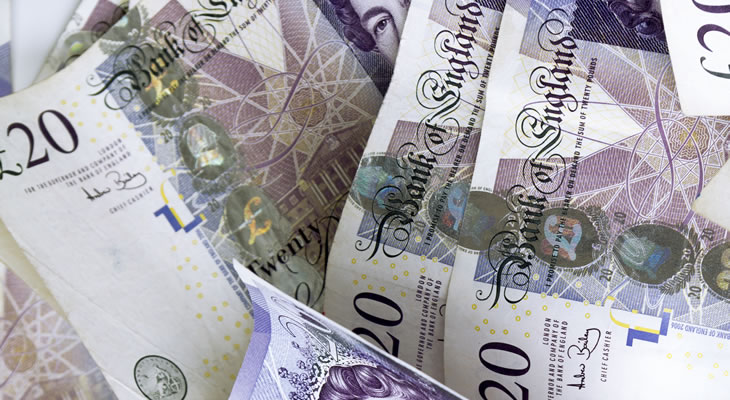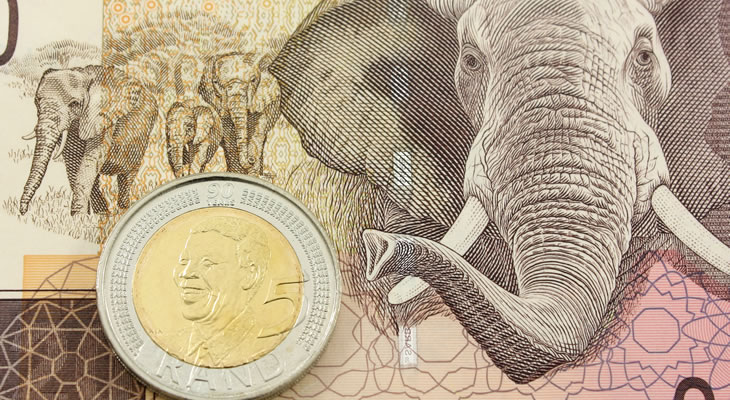- Pound exchange rates up on recent Article 50 drama – Rand supported by 2016 elections outcome
- Doubts remain over post-‘Brexit’ economy – Do August results tell the whole story?
- Historic shift in ZA governance aids Rand movement – ANC losses raise confidence in ZAR
- Full UK PMI results vital for continued Pound rise – EFF holds crucial role in future ZA politics
In a surprising post-‘Brexit’ development, Pound to South African Rand (GBP ZAR) exchange rates have traded strongly during late August, suggesting that recent data has helped lessen the impact of pre-Referendum forecasts that an ‘Out’ vote would shatter the UK economy.
The South African Rand has also gained in strength in the aftermath of the municipal elections that were held at the beginning of August, due to the profound implications about the future of South Africa’s political composition.
Article 50 Scare sees GBP-ZAR Exchange Rate Soar, Rand Gains Elsewhere on Depleted ANC Powers
The Pound has been in high demand against the South African Rand and other regular peers for the week so far, though the trigger for this large-scale investment came from late news on the previous Friday.
Unsourced statements from two unnamed ‘government officials’ pointed to April 2017 as being the latest that Article 50 would be triggered to initiate the UK’s exit from the EU, which sent the Pound crashing down on late Friday.
Shortly after this news, a Downing Street spokesperson denied the rumour, though the Pound did not immediately recover.
Instead, Sterling took until Monday to rally against the Rand and most other peers, an action which it sustained over Tuesday’s trading session as well.
The Rand has been able to make gains of its own against other major rivals such as the Euro and US Dollar, owing to the result of the early August’s South African Municipal Elections.
One focal point of the election was South Africa’s largest city; Johannesburg. While the incumbent African National Congress (ANC) party still won with a majority of over 44% of the city’s vote, the Economic Freedom Fighters (EEF) refused to form a coalition with the ruling party after securing 11% of the vote. The increasingly popular Democratic Alliance (DA) in around 38% and the city council elected the party’s Herman Mashaba as Mayor.
Commenting on the decision not to form a coalition with either party, EFF spokesman Mbuyiseni Ndlozi said;
‘For a revolution, you need an unequivocal popular mandate. The EFF wants state power to implement its policy pillars. That’s that’.
GBP Exchange Rates could Slide on Poor Post-Brexit Domestic Data
While the Pound has clearly benefited from the latest domestic data out of the UK, which seemingly indicates no major crash after the EU Referendum, the question of whether this trend will continue across the year still needs answering.
The latest UK data came from the Confederation of British Industry (CBI) in the form of trends for selling prices and total orders in August; orders have fallen while prices have risen.
Responding to the news, CBI Head of Economic Analysis and Surveys Anna Leach said;
‘It’s good to see manufacturing output growth coming in stronger than expected, and some signs that the fall in Sterling is helping to bolster export orders. But the Pound’s weakness is a double-edged sword, as it benefits exporters but also pushes up costs and prices’.
Leach also gave a longer-term outlook, stating that;
‘The most significant effects of the vote to leave the EU will flow over the medium to long-term. Therefore firms need to see ambitious decisions in the [Chancellor’s] Autumn Statement that will secure the UK’s economic future as changes to trade, regulation and access to skills loom on the horizon’.
Market Outlook on South African Politics to Dictate Rand Movement for Foreseeable Future
While the results of 2016’s municipal election are now in, the long-term ramifications for the ANC losing a considerable share of the vote are set to influence investor perceptions of the South African economy for a long time to come.
With the ANC having lost its grip on prior gains to both the DA and the EFF, news has emerged that the EFF held three meetings with the ANC and the DA when it became clear that having so many divided councils would provide no solid majority for any party.
EFF spokesman Mbuyiseni Ndlozi recounted the demands that had been made of the ANC in order to form a coalition, including nationalising South Africa’s mines, free education and the removal of controversial ANC leader Jacob Zuma as President.
Summarising the outcome, Ndlozi said;
‘The ANC reiterated that the removal of President Zuma was a nonstarter…the talks with the ANC thus ended in failure, the ANC having shown a complete lack of creativity, and no drive to act’.
Despite not forming a coalition with the DA either, Ndlozi revealed that;
‘In the end, we chose to support the DA candidates in an effort to create an opposition voting block. In this regard, our experience of the success of opposition voting blocks in Parliament was central. Central to our thinking was that we have to create a vibrant, creative political environment where change is possible’.
Long-Term GBP ZAR Forecast: Further UK Ecostats to Offer Clearer Picture, Further ANC Struggles Likely
The next notable data likely to shift the Pound against the Rand in the long term will come at the beginning of next month, when the September 1st manufacturing PMI for August is release. Following on from this over the 2nd and the 5th will be the construction and services PMIs for the same month; both manufacturing and services have been forecast to rise, while remaining in the sub-50 contraction range.
From South Africa, parliamentary action will be key for the future appeal of the Rand, as any signs that the DA municipal dominance of key cities could upset the plans of the ANC are likely to boost the appeal of the Rand against its peers considerably.
Recent GBP ZAR Exchange Rates
At the time of writing, the Pound South African Rand (GBP ZAR) exchange rate was trending in the region of 17.7540 and the South African Rand Pound (ZAR GBP) exchange rate was trending in the region of 0.0563.




Comments are closed.